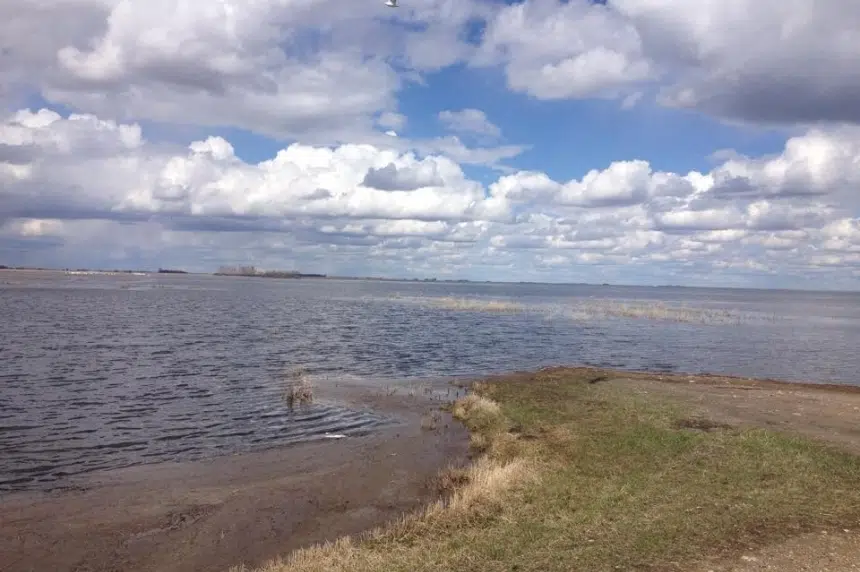The Saskatchewan government is flushing away a proposal to deal with rising water on Quill Lakes after a flood of backlash during public consultations.
Water levels on the Quill Lakes have gone up by 6.5 metres – or 21 feet – since 2005. If it rises by more than one metre next spring, the saline water will spill downstream into Last Mountain Lake.
This summer, the Water Security Agency introduced a proposal to divert water from Kutawagan Lake into Last Mountain Lake instead and to build a berm along one shore of the Quill Lakes to protect the highway and railroad. However, people upstream and downstream seemed to reject the plan for different reasons.
“The Quill Lakes people felt it didn’t go far enough, the Last Mountain Lakes folks were concerned,” Saskatchewan Environment Minister Herb Cox said, explaining the reasons why the project has been cancelled. “The cost did come in higher than what we anticipated so certainly that was part of it. We weren’t able to get the environmental assessment done. So those three factors all played in, but the major factor was the consultation process.”
The decision to cancel the Kutawagan proposal is great news for farmers like Doug Franko, who lives on Quill Lake. He laughed when he heard the news.
“I didn’t know they had cancelled it,” he said. “I think that’s a good thing because I thought it was a dumb idea.”
He and other farmers in the area say the Kutawagan diversion plan would do almost nothing to lower the water levels on Quill Lakes and the berm could have made the flooding situation even worse.
Every year, he watches helplessly as his land slowly disappears under the rising lake. This year, the water came up to the southwest corner of his own yard, forcing him to build a berm to protect the property.
“The water levels are not going down, they are steadily increasing. Consequently, I lose more cultivated acres every year and no compensation for storing the water,” he said. “I am the proud owner of an asset that theoretically has no value. I can’t sell it. I can’t borrow money against it. I can’t do anything except make payments on the mortgage that is on some of the land that I have under water.”
Franko and other farmers would like to see some kind of compensation for the land they have lost, but the government has flatly rejected that idea, saying there is no money available for that because it is in a natural flood basin.
There is also a big concern about the impact of saline water on the fish and wildlife populations. Last Mountain Lake is home to a wildlife preserve for shore birds.
Cox noted that some public concerns were based on misinformation because Kutawagan Lake is fresh water, and it wouldn’t have posed a risk to fish and wildlife. According to the Water Security Agency research, Kutawagan Lake has fresher water than the Quill Lakes, but it still has a much higher saline content than Last Mountain Lake.
“The saline water was marginally higher than what would be in the Last Mountain Lake at this particular time, but it is certainly a lot less saline than the water that would have been in the Quills,” Cox said.
Trent Wotherspoon is the opposition NDP critic for this file. He says it’s about time the government cancelled this project.
“It’s incredibly frustrating that we’re dealing with it at this late stage of the game, a potential plan that government put forward that wouldn’t have fixed the problem and could have caused irreparable harm,” he said.
Wotherspoon says it’s outrageous that members of the government thought they could get away with diverting saline water into Last Mountain Lake without an environmental assessment.
Now the WSA and officials with the Ministry of the Environment are going to review other proposals to deal with the water. Some ideas may include diverting water into reservoirs or injecting the salt water into deep wells, which is a process that is used by potash mines.
Cox said he is confident the officials will find a solution in the near future.











